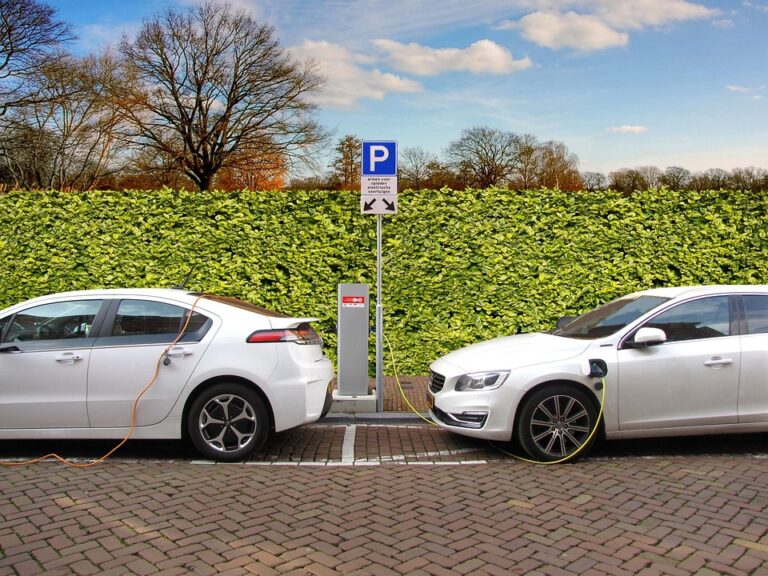Understanding the Costs: Is Installing a Home Electric Charging Station Worth It?
As electric vehicles (EVs) surge in popularity, many owners are considering the installation of home electric charging stations. While the convenience and environmental benefits are clear, the financial implications can be a bit murky. In this article, we’ll explore the costs associated with installing a home electric charging station and whether this investment is truly worth it for EV owners.
The Rising Popularity of Electric Vehicles
Electric vehicles are becoming increasingly mainstream, with market analysts predicting that by 2030, EVs will make up over half of new car sales. This shift is primarily driven by environmental concerns, government incentives, and advancements in battery technology. However, one of the critical considerations for prospective EV owners is the method of charging their vehicles.
Why Consider a Home Charging Station?
Many EV owners find that charging at home offers unparalleled convenience. Here are some reasons to consider installing a home charging station:
- Cost Savings: Charging at home can often be cheaper than using public charging stations, especially if you take advantage of time-of-use electricity rates.
- Convenience: Charging your vehicle overnight means you start every day with a full battery, eliminating the need to visit charging stations during busy hours.
- Increased Property Value: As EVs become more common, having a charging station installed may enhance your home’s value and attractiveness to future buyers.
Understanding Installation Costs
The Price Breakdown
Installing a home electric charging station isn’t just about the station itself; several factors contribute to the overall cost. Here’s a breakdown:
- Charging Station Cost: Basic Level 2 home charging stations start around $400 and can go up to $1,500, depending on the brand, features, and amperage.
- Installation Costs: Depending on the complexity of your home’s electrical system, installation can range from $500 to $2,000. Factors that influence this include:
- Distance to the electrical panel
- Required electrical upgrades
- Local labor rates
Additional Costs to Consider
- Permits and Inspections: Some jurisdictions require permits for electrical work. This can add another $100 to $300 to your total.
- Potential Electrical Upgrades: Homes with older electrical systems may need to upgrade their panels or wiring to support a charging station, adding significant costs.
Government Incentives
Fortunately, many states and local governments offer incentives for EV-related purchases, which can alleviate some of the financial burden. These may include tax credits, rebates on charging station purchases, or discounts on installation. For instance, the Federal Government provides a tax credit of up to $1,000 for home charging station installations.
Assessing Your Charging Needs
Evaluating Your Lifestyle
Choosing to install a charging station should also involve evaluating your driving habits. Here are some questions to consider:
- Daily Commute: How far do you drive daily? If your commute is short (e.g., less than 40 miles round trip), a Level 1 charger might suffice.
- Vehicle Type: Some EVs have larger batteries and require more charging power. Ensure that the charging station you select aligns with your vehicle’s specifications.
- Accessibility: Is your current garage configuration suitable for easy access to a charging station? Ensuring your station can be easily reached enhances the convenience factor.
The Long-Term Cost-Benefit Analysis
While the initial costs may seem daunting, it’s crucial to consider the long-term financial savings:
- Fuel Savings: Electric cars can cost significantly less per mile to drive compared to gas-powered vehicles.
- Maintenance Savings: Electric vehicles typically require less maintenance, reducing overall ownership costs.
- Resale Value: As more drivers make the switch to electric, homes equipped with charging stations may see an increase in resale value.
Conclusion: Is It Worth It?
Investing in a home electric charging station is not merely an expense; it is a forward-thinking move that allows you to take full advantage of the EV revolution. With an understanding of the costs involved, the added benefits, and the potential savings, many find that having a charging station at home is worth the investment.
Call to Action
If you’re thinking about making the switch to electric, explore local charging station options and governmental incentives that could make installation more feasible. The future of driving is electric, and being prepared with a home charging station places you at the forefront of this change.
For a deeper dive into electric vehicles and maximizing your EV experience, check out our other articles on buzzo.live. Your electrifying journey starts now!


